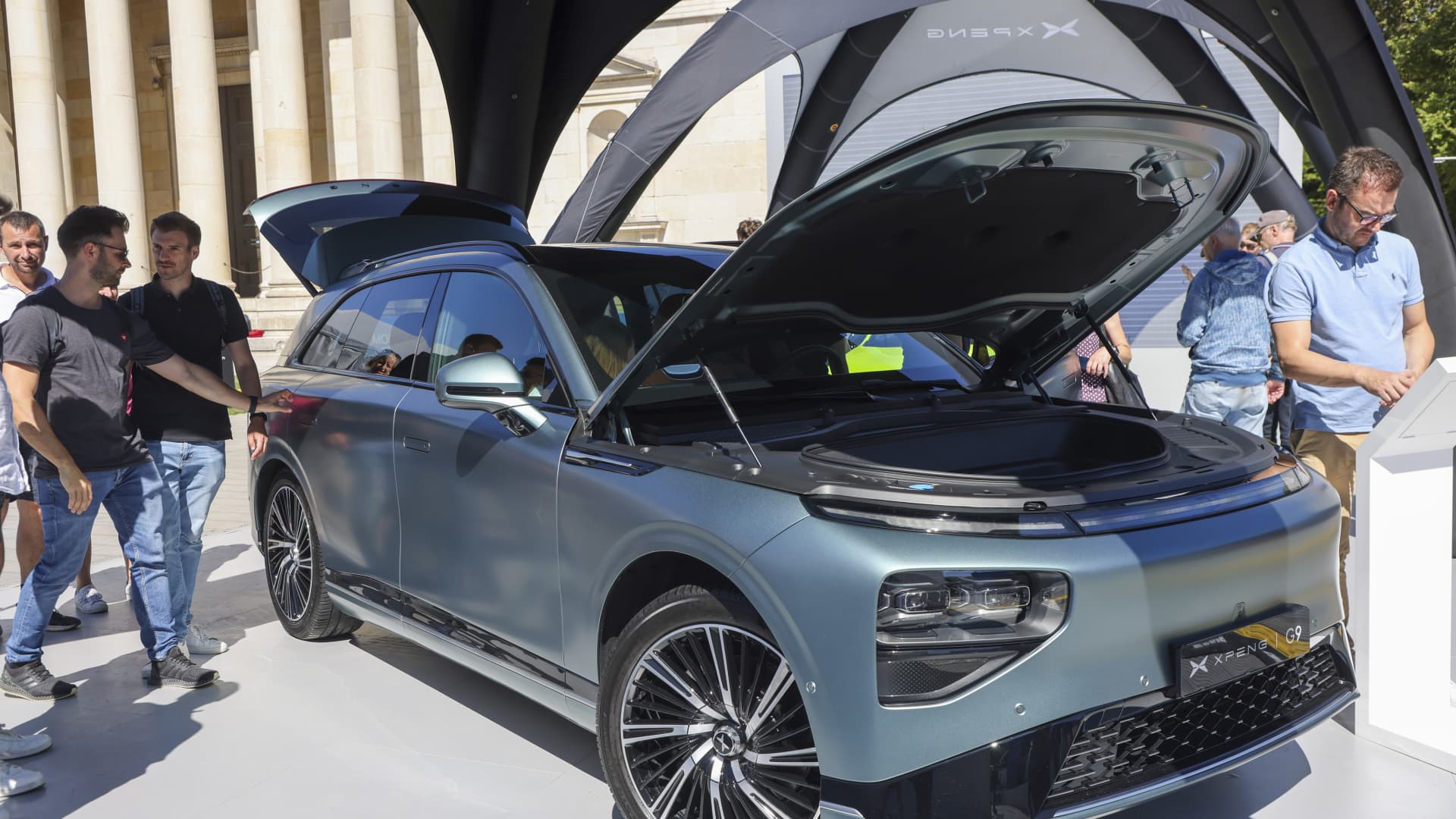BEIJING — Chinese electric car company Xpeng said this week it plans to roll out driver-assist technology in Europe by the end of next year, and remains on track with plans to expand the tech to 50 cities in China by year-end.
U.S.-based Tesla‘s version for city streets — called Full Self-Driving Beta — has yet to be released in China and it’s unclear how many of the driver-assist features are available in Europe.
Deployment of such tech is subject to regulatory approval.
Xpeng needs time to test and localize its driver-assist software in Europe, Brian Gu, honorary vice chairman of Xpeng’s board of directors and co-president, told reporters Wednesday. He declined to provide details on planned availability.
He said the startup is cooperating with EU regulators on their recently announced probe into subsidies at Chinese electric vehicle companies, and the company is taking a “stringent approach” to comply with Europe’s GDPR data protection rules.
In China, Xpeng said in June it could start rolling out its tech, called XNGP, for drivers on some major expressways in the capital city of Beijing.
That followed the company’s release of urban scenario driver-assist tech for users in Shanghai in March, after an earlier rollout in Shenzhen and Guangzhou.
The system, available to users of certain car models for a fee, claims to make driving easier with software that assists with smooth braking at traffic lights, turning at intersections and other tasks on city streets.
More than 90% of users in Beijing with the driver-assist feature have turned it on, Xpeng’s Gu said.
He claimed the company is seeing “an inflection point” in China for consumer adoption of driver-assist technologies. Gu said the tech was the most important feature consumers wanted for the 2024 version of the G9 SUV.
The car, released in late September, starts at 263,900 yuan ($36,060), and costs 289,900 yuan ($39,613) with XNGP driver assist. The price for Tesla’s Model Y in China also starts at 263,900 yuan.
Xpeng claims the software makes driving easier by helping with smooth braking at traffic lights, turning at intersections and other tasks on city streets.
Other Chinese electric car models, including from Huawei and Nio, are increasingly making their driver-assist capabilities a selling point.
Xpeng has generally lagged its Chinese competitors in terms of monthly deliveries. But deliveries picked up to 15,310 vehicles in September, from 13,690 units in August.
Sales for Tesla’s Model 3 and Model Y vehicles made in China were down 12% from August to September, according to China Passenger Car Association data.
Elon Musk’s electric car company last week reported a 22% decline in gross profit for the third quarter from a year ago — its first miss on both earnings and revenue since 2019.
— CNBC’s Lora Kolodny and Jake Piazza contributed to this report.
